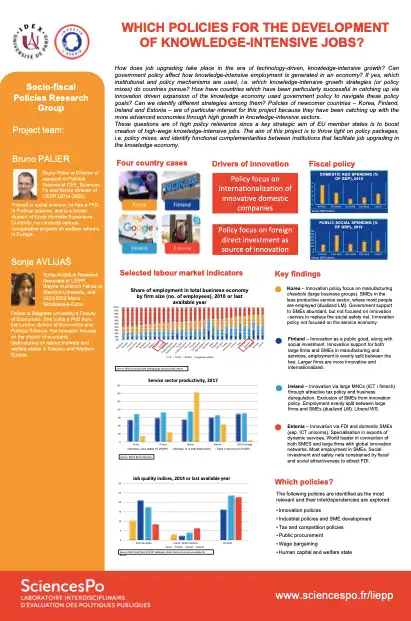
Home>Research>Project>Which policies for the development of knowledge-intensive jobs in Europe?
Which policies for the development of knowledge-intensive jobs in Europe?
Project leaders :
- Bruno PALIER (CEE/LIEPP, Political economy, Social policy)
- Sonja AVLIJAS (LIEPP, Political economy)
This project obtained funding from LIEPP through the 2017 call for proposals.
With the information and communication technology (ICT) revolution that has taken place over the past two decades, knowledge and skills have been identified as key inputs for economic growth and job creation across the EU and beyond. There is, however, an implicit assumption in the comparative political economy literature that the state creates skills through investment in human capital,following which firms “automatically” create well-paid knowledge-intensive jobs to match those skills. This project moves beyond this analytical separateness between skill formation and knowledge-intensive job creation and aims to identify the types of policies that governments pursue to bring these two components of the so-called knowledge economy together. A comprehensive policy mix that can be associated with the generation of well-paid knowledge-intensive jobs may include fiscal incentives, strategic public procurement and innovation oriented policies, among others. The mix of policies will be identified through a comprehensive literature review and interdisciplinary workshops with economic geographers and labour and innovation economists from Sciences Po and beyond. This policy mix will then be operationalised into measurable indicators and a statistical framework will be developed to explain cross-national differences in the creation of knowledgeintensive jobs in Europe.
Poster of the project - June 2021


